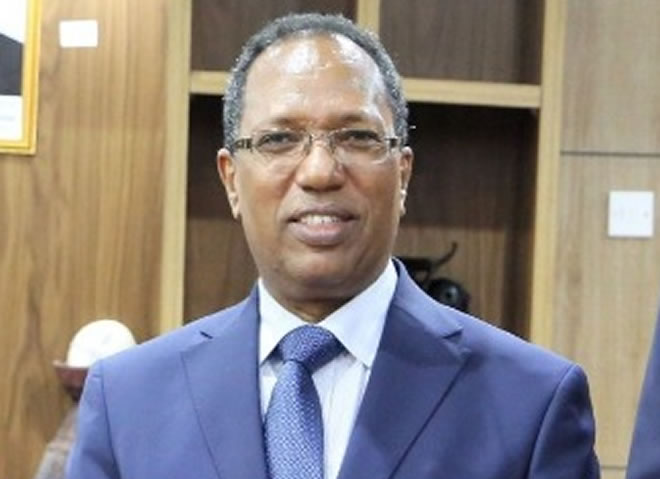Mohamed Mukhtar
Friday September 02, 2022

Minister of Finance, Dr Elmi Nur
In a virtual meeting held on the 30th of August, the federal member states’ finance ministers of Puntland, Jubbaland, South West, Galmudug, and Hirshabele suspended all cooperation with the Ministry of Finance of the Federal Government of Somalia. It is worth noting that this comes barely three weeks since the Minister of Finance, Dr. Elmi Nur, took over the helm of the critical ministry upon nomination by the Prime Minister and subsequent approval by the Federal Parliament. That notwithstanding, the minister is yet to meet the finance ministers of the federal member states collectively.
As per the grievances detailed in the “suspension notice,” they state, “Having realised the ministry of finance of the Federal Republic of Somalia’s unwillingness to implement, and the FGS deliberate violation of the agreed upon terms and conditions …” It is not clear how they determined that the new minister will not sufficiently strengthen the cooperation between the two levels of government in areas of policy implementation and payments. Yet no attempts were made in the notice as to the evidence that the ministry directly and deliberately, by omission or commission, failed to adhere to past agreements and best practices. Taking such a drastic decision on one transaction without negotiation or disagreements is premature. Moreover, it is unwise to share official grievances with the public before even channelling them to the ministry.
In the suspension notice, the finance ministers of the federal members stated that the federal government has failed to honour several agreements designed to manage the relationship between the national and subnational levels. However, it is worth remembering that one of the shortcomings of the provisional constitution is failing to provide for a division of resources or a system of intergovernmental transfers. It ambiguously states that the distribution of resources is fair and that the responsibility for raising revenues shall be given to the level of government ‘where it is likely to be most effectively exercised. This has seen the federal government and the member states continue to operate in quasi-autonomous jurisdictions, further stirring confusion. There are some agreements between the federal government and member states on several issues; however, these agreements or MoUs cannot serve as final reference materials for as long as the parliament does not yet approve the foundation laws. Ideally, in fiscal federalism, each level of government possesses certain unique powers to make economic decisions within their respective jurisdictions for the common good. These powers should be enshrined and clearly defined in the structure and system of governance as stipulated in the constitution; failure to which the process of distributing budgetary support or collecting and assigning revenues will be contested.
The discussions on intergovernmental relations regarding federalism’s economic and fiscal aspects have not progressed as quickly as expected, further curtailing the progress in strengthening the country’s governance, social and economic priorities, and policies. The need to enhance inter-governmental trust, promote knowledge sharing, protect common economic space, and ultimately adopt a mechanism of fiscal arrangement that promotes more significant equity in resource distribution among federal and sub-national governments is critical. It is, therefore, in the interest of the common good that while there could be grievances and misunderstandings between the FGS and FMS, the focus must be laid upon efforts to resolve policy and constitutional gaps to strengthen further the gains made thus far. It is in the citizenry’s interest that the two levels of government continue to work harmoniously, seamlessly, and effectively to improve service delivery and stability of the incoming government.
Mohamed Mukhtar
Former Federal Minister of Petroleum and Minerals
[email protected]